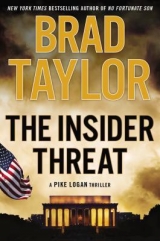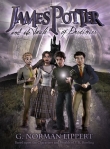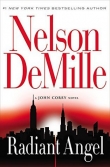
Текст книги "The Insider Threat"
Автор книги: Brad Taylor
Жанр:
Боевики
сообщить о нарушении
Текущая страница: 7 (всего у книги 30 страниц)
22
After waiting much longer than he thought he would, Ali Hussein began to believe his father had decided to ignore him, which brought a sliver of fear. Ringo and his team were supposed to arrive from Ma’an tomorrow, and if he couldn’t deliver, he was sure he’d be discarded, his throat cut, left to bleed out in an unnamed village in the desert.
He glanced around the cavernous lobby of the Grand Hyatt, seeing a woman at the reception desk stealing furtive glances his way. Soon enough, one of the security guards manning the metal detectors at the door would ask him his business, then ask him to leave.
He stood up, thinking he’d go to the restroom just to quell the heat of the glares, when he saw a man coming across the lobby. He stared, trying to remember, peeling back layers of vague recollections from a lifetime ago. Trying to reconcile the person walking with a wrinkled, yellowed photo of his father taken fifteen years earlier. The only one he’d ever seen.
He thought it might be him. When the man looked him dead in the eye, he knew it was. He waited, shifting from foot to foot and running through in his head what he had come to call “The Speech.”
As he got closer, Hussein saw he was well groomed and immaculately dressed, with a pair of crossed gold keys on his lapel.
He’s the concierge. He never mentioned that in our emails.
Before they’d fled into the desert from the training camp in Syria, Omar had located his father and had had Hussein initiate contact. They’d emailed back and forth twice, but beyond Omar knowing that he worked at the Grand Hyatt—because that was the email address Omar had found—he’d never mentioned being a concierge. Which was both good and bad. Good in that it meant that his father had worked his way up from the bottom, and was valued by the hotel management, but bad precisely because he would hold his reputation before anything else.
The stranger stopped in front of him, and Hussein was at a loss for what to do. He tried a smile, which came out as a grimace, and his father said, “Ali.” The stranger stared at Hussein for a moment, overcome by emotion. He said the name over and over again, as if to convince himself it was real. “Ali, Ali, Ali, I never thought I would see you again.”
Then his father embraced him.
Hussein was shocked. He plumbed the depths of his memory, trying to remember anyone showing him true affection. He could not. Even the love he’d experienced with women had all been paid, either in dollars or drugs. He was unsure what to do, his arms in the air looking for a place to go.
His father drew back, holding both of Hussein’s shoulders at arm’s length. Hussein actually saw a tear in his eye. Unable to come up with anything else, Hussein said, “Hello, Father.”
Which caused another round of embracing. The entire episode was confusing to Hussein. He’d expected to cajole or beg, knowing that his father wanted nothing to do with him. After all, if he did, why did he leave so long ago? He had so many questions.
His father said, “Come, come,” leading him to a table in the foyer, away from the front door. “Sit, sit.”
Hussein did so. His father said, “How did you come here? How is your mother?”
“She’s in jail. Drugs. I haven’t seen her almost as long as you.”
The smile faded from his father’s face. “I’m sorry to hear that. I truly am.”
Hussein had a planned speech. A quick way to get what he wanted, the same act he’d used to get through most of his life. A plausible lie wrapped in a pit of treachery. What came out surprised him.
“Why did you leave us? Why did you leave me?”
His father glanced out the window, staring but not seeing the street beyond. Reflecting. He said, “I always intended to come back. I never wanted to leave. I was on a visa when I met your mother. She became pregnant, and I began to apply for citizenship. Then she became hooked on drugs.”
His eyes teared up again, and Hussein felt his conviction falter. His mission began to dissolve. His father continued, “I was a taxi driver. I made no money, and she began to burn through it all. I tried to get her out, but failed. Then, the terrorist attack in New York happened. The World Trade Center fell, and everything changed. She was arrested one more time, and my visa was revoked. They said I was involved in her crimes, then accused me of planning attacks against America. They threatened me with jail, and I saw the news about the detention centers in Cuba. They couldn’t prove anything, but I was so scared. They just deported me as a nondesirable. There was nothing I could do. I didn’t fight it.”
He began to cry, and Hussein rubbed his arm, reeling with the truth that obliterated all of his pent-up loathing. “It’s all right, Father. It’s okay.”
His father looked up and said, “I am ashamed that it is you who had to find me, but I’m proud at the same time. You are what I would like to be. You look good.”
Hussein laughed and said, “No, I don’t.”
“That’s true. You don’t, but you look good to me.”
They sat in silence for a moment, his father drinking in the visit and Hussein conflicted about why he’d come. Eventually, his father said, “So, what can I do for you?”
Snapped out of his thoughts, Hussein gave his speech. “I’m only here for a month. I traveled a great distance to see you, and I’ve used up all of my funds. I have a place in east Amman. It’s paid for, but I need work to live. I need a job.”
His father said, “Nonsense. You’ll come live with me. Leave that place behind.”
Which was the complete opposite of what Hussein had expected. He thought about it. Freedom, tantalizingly close. Then he remembered Omar. Remembered that Omar knew where his father worked. Knew everything, including how to punish.
There was no easy way out.
“No, no. I want to make my way. I want to work. I want to establish myself. Let me do this my way. All I ask of you is a job.”
His father leaned back and said, “I wish I could do that. I can give you my home, but I can’t give you a job. You are probably too young to remember, but terrorists blew up this hotel in 2005. I was working, and it was horrible. Since then, they’ve become very, very strict about hires. Background checks and everything else.”
“I’ll do anything. Clean rooms, maintenance, whatever. I’m not looking for a cush job. Just one that lets me survive.” And gives me a key to a door away from the security.
He banished that thought as something to deal with later. When he could analyze where he was.
His father said, “It’s not the position. Everyone gets the same scrutiny.”
“But I’m an American citizen with a well-respected father. Right? Surely that counts.”
His father reflected for a moment, then said, “There’s an opening in the kitchen. It’s a cleaning position. You’ll have to spend your time scrubbing ovens and hauling trash out of the building, but I think I can get through the red tape because of the unique circumstances.”
Hussein said, “I’ll take it.”
His father patted his arm and said, “Let me get the applications. Help you fill them out.”
He left to gather the paperwork, and Hussein wondered again at his father’s love. Wondered if he had it in him to use that love to kill.
23
Rashid al-Jaza’iri said, “Play the tape again.”
The man to his front clicked the digital button on the computer, and the conversation came out anew. A voice discussing a meeting, and another voice agreeing. The second man on the recording was the one that intrigued him.
He said, “That isn’t Adnan.”
“I know. We believe that Adnan was killed in a crusader air strike. Everyone is talking about it. Much like happened to us.”
The man speaking was an emir of Jabhat al-Nusra, and the one who had bankrolled, sheltered, and championed the Khorasan group. He had a direct line to the heart of al Qaida, and wasn’t someone to trifle with. Even so, Rashid—known as the Algerian—understood the respect he commanded. As Rashid was one of the few remaining Khorasan members, and a man who’d served faithfully in both Afghanistan and Syria, Jabhat al-Nusra listened to what he had to say. He’d fought valiantly on all fronts, but that wasn’t what made him special. Like many before him, he’d come from a European state, but unlike them, he brought with him some specific skills.
He’d defected from French intelligence, the highest-ranking man in any country to ever do so. He’d served in the belly of the beast of the DGSE—Directorate General of External Security—learning the dark arts, and then had decided to use those skills in the fight for Allah. He hadn’t been instructed in the ways of tradecraft and treachery at some camp serviced by camels. He’d been trained by the best, in a first-world country, and everyone knew it.
A fact he could now use, even as he was talking to an emir in Jabhat al-Nusra.
“So, this new man is the go-between to get the explosives we developed? He’s the new contact?”
“Apparently so.”
Rashid hit the play button again, just to be sure. When the conversation ended, he said, “What, exactly, is the Islamic State planning?”
“We don’t know. Only that it will be big. After our members were martyred, Adnan reached out, saying that he had an attack against the West, and could succeed.”
“Yes, yes. I know all of that. I’m the one that agreed. When it was Adnan.”
At a loss, the emir settled for “It’s still Adnan. The mission was already put in motion, with some Amriki that are without scrutiny. Completely clean. This man is the one who is leading them.”
“Amriki. Americans. It sounds tempting, but I’m not so sure.” He said it offhand, hiding his true feelings. Hiding his hatred. He needed to be convincing.
“Adnan called them the Lost Boys. They are undetectable. In fact, one is in Jordan right this minute. He’s planning an attack there, with some of our members.”
That picked up Rashid’s interest. “What members?”
“Remember al-Britani? The one who relishes being in the propaganda? Delivering justice?”
“Yes. I do. I used to lead him. He’s not that impressive. He fought when he had to, but spent more time in front of the camera after the fact. He has half the world chasing him because of it.”
The emir said, “Not this time. He’s in Jordan right now, and he has one of the Lost Boys with him. They’re planning a synchronized attack with the man you just heard. A significant blow that we can claim with the Islamic State. It will be our joining. Showing the world that our fight from the past is done.”
“Really? And why wasn’t I told about this?”
Rashid saw the pique in the emir’s face, and knew to back off. If only to get what he wanted.
“Because you were with the Khorasan group. Tasked with the very attacks they are conducting. Yet you failed.”
Rashid heard the words and felt the sting. He wanted to lash out, but he was too close. Too close to getting his hands on the man who had humiliated him.
Two years before, in response to al Qaida siding with Jabhat al-Nusra over a question of legitimacy, the Islamic State had declared them an enemy, slaughtering al-Nusra as easily as the regime’s soldiers in a vicious bloodletting that rivaled the civil war itself. Al-Nusra should have mopped up the Islamic State in short order. Would have beheaded all of them for their treachery, as they had the better men and skill, except for one soldier: Omar al-Khatami. The Chechen. Fighting for the Islamic State, he had proven to hold a battlefield prowess like none other—even the Syrian army—and had laid waste to huge swaths of al-Nusra terrain. The culminating point for Rashid was a battle in a village outside of Aleppo.
Terrain cut off, no supplies coming in, men beheaded or shot on sight, al-Nusra had collapsed, and Rashid had fled, escaping dressed as a woman, his face hidden by a niqab veil, his body cloaked in black. He’d been stopped at a checkpoint, and had known he was dead. The only question was how slow it would be.
Omar had interrogated him, searing his voice into Rashid’s brain. Omar had punctuated each statement with the blade of a knife, then, inexplicably, had left the room without killing him.
Lying in a pool of spit and blood, Rashid had feigned weakness, lulling his captors. When he’d seen a fleeting opportunity, he’d seized it. Using his skills and a healthy dose of luck, Rashid had slaughtered the guards holding him with a steel spring torn from a mattress, fleeing into the dark still dressed as a woman.
A shameful woman.
The rage that memory brought could never be calculated, and now he had the means to deliver retribution.
If only he worked this right.
He said, “Okay. Let’s give him the contact in Albania, but tell him the meeting is twenty-four hours later. Tell him we’ve had issues.”
“Why?”
“I want to vet him. I want to be sure he’s who he says he is. I know Adnan, but I don’t know this man. I’m going to Albania personally.”
The emir smiled and said, “That’s not necessary.”
“It is to me. I’m going. And I’m taking my men with me. I need support assets. I need passports and clean money. Credit cards and cash.”
The emir considered him, seeing the conviction, and said, “The fight is here. Now. If they succeed, they succeed. If they don’t, nothing has been harmed. Let them continue.”
Rashid nodded and said, “I have the skill to blend into the population. The intelligence training to evade the crusader net. I want to help him, and this is the best way.”
The emir pursed his lips and sat back. “You feel this is necessary for success?”
Rashid smiled, saying, “Yes.”
But he failed to articulate what he meant by success.
24
I felt the heat start to rise inside the car and wondered why the hell I’d decided to control the operation. I could have put Knuckles in charge and been inside with Jennifer.
Dumbass.
Truthfully, after the last operation, I wasn’t looking forward to another follow-and-catch mission. I wanted some high adventure, not the boring slog of building a pattern of life, then a single takedown. Yeah, the final endgame had been a little fun, but the damn buildup was murder. But apparently, this guy was somewhat important, made more unique because he was American.
Kurt had called, redirecting us just as we were headed to Hyrax Hill in Kenya, the famed cradle of civilization discovered by the Leakeys back in the 1920s, and the reason we had supposedly come to the country. Which aggravated the hell out of Jennifer.
She could live with the guns and blood, but she did so primarily because we always got to do some digging around old pottery shards to maintain our cover—although I secretly believed she was beginning to like the Jason Bourne stuff. This time, her expected trip was cut short.
We were redirected to Jordan under some flimsy excuse of checking out the deterioration of Umm el-Jimal, some Byzantine relic full of archaic bricks. Ostensibly we were under contract for UNESCO, the UN organization charged with preserving culturally significant sites around the world. Before Jennifer got to drag me to that place, though, she had to build a pattern of life on our target, and this one had some peculiarities.
Kurt had given us a complete data dump, and the history of this guy really made me wonder what the hell we were doing in the grand ol’ US of A. The target was an asset recruited, trained, and inserted into Syria by the CIA only to end up killing other CIA assets. Made me shake my head. The second head-scratcher was why we were chosen for the mission. When we were used, it was precisely to evade the prying eyes of the host nation, which sort of defeated the whole “coalition of the willing” thing. But then again, given the sensitivities with Jordanian politics, I could at least buy that.
Anyway, it was going to be an in and out. The detail we’d gotten from the CIA was spot-on, with potential locations, current photographs, and biodata. We’d deployed with Omega authority in hand and had found the guy yesterday right where they said he’d be—at his father’s hotel—and now we were doing the necessary boring work of developing his habits so we could pick a kill zone.
Easy stuff. Except for the heat in my car.
My earpiece crackled and I heard, “Trigger. Got Hipster. He’s headed out. This time with a uniform in hand.”
Looks like he got the job.
His name was Hussein, but we didn’t use that on the radio. He had a wispy mustache thing, and was skinny, wearing tight jeans and looking like some twentysomething that frequented Brooklyn coffee shops arguing sections of Proust, which is where Retro had come up with the code name “Hipster.”
From what we could tell, he’d been interviewing for a position inside the hotel. I guess trying to build a new life for himself. I hated to crush that aspiration, but it was my job. Okay, I didn’t at all. Seeing an asshole cut off someone’s head does that to me.
I said, “Roger. Loose follow. Just confirm the same route and residence.”
Amman, Jordan, is a unique city in that the entire place is split right down the middle, with the haves and have-nots clearly separated, much like all of the small towns you read about in old stories of America, with a “right side of the tracks” and a “wrong side of the tracks.” In this case, the entire section of west Amman was the right side, with high-end shopping, expensive cars, leafy parks, and spas. The east was the wrong side, with claustrophobically close stone buildings, dripping pipes, and refugee camps from the spillover of wars from the formation of Israel to the invasion of Iraq and the current Syrian fight.
The Grand Hyatt hotel, where Hussein’s father worked, was right in the center, and from it, Hussein had routinely walked the four kilometers home, winding his way through the narrow streets until he reached the famed Citadel, an old Roman ruin in the heart of the city. From there, he entered the packed confines of the east, leaving the glow of west Amman behind and slinking his way past the cloistered buildings, scattered clotheslines, and open markets to a concrete apartment complex of the kind that was ubiquitous in east Amman. Really, the same type of thing you saw all over the Middle East.
Parked within view of the hotel entrance, I saw the target exit with a smile on his face, and I wondered how long he’d hold it.
I said, “I got him. Retro, he’s on the same track. You ready?”
“Roger.”
From there it was a boring leapfrog, with me manipulating teams. Something I could have done in my sleep. The only hard part had been following his route on day one, since it appeared that every street in Jordan had multiple names, depending on who was doing the talking or who had made the street sign. We’d created our own surveillance maps, with our own codes for the major arteries, so everyone was on the same sheet of music, and if he followed his pattern we’d be set on that piece of the puzzle. What I really wanted to know was where he actually stayed at night. We had the building, but we might want to take him down right in his room, and so, after triggering, Jennifer got the job of rushing ahead to pick him up at the endgame while everyone else continued to confirm his route.
Jennifer and I had scoped out the area beforehand and had found a coffee shop that afforded her a view of his apartment complex. While east Amman was rustic, to say the least, the city had tourists traveling all over, with many wanting to see the old-world charms of the east, so she would blend in just fine. Actually, better than fine. She’d gone in for tea earlier, just to check it out, and they’d fawned all over her, amazed that a Westerner would want to see them.
Of course, true to form, she’d had her head covered in a scarf, learned enough Arabic to say hello, and had done research to be able tell the servers the history of the area. She was perfect that way. I’m sure if I’d gone in, they would have spit in my cup, mainly because I would have ordered a beer.
The apartment building had two entrances, and her sole function today was to see which door he used, then trigger Brett to penetrate so he could get atmospherics inside. Possible stairwells, mailboxes, or anything else we could use to neck down the location of his apartment. Building a pattern of life was like LEGO blocks. One brick at a time. Since there was no rush on this, and we had a handle on him, I would take all the time necessary to get it perfect.
I got all the calls saying he was continuing on his route, plotting each one on my computer for historical reference and growing bored. Wishing we had a more interesting target.
I realized I hadn’t heard from Jennifer after her jump from the hotel to the coffee shop. I broke squelch. “Koko, Koko, this is Pike. Status?”
I heard nothing.
I sat up, now more alert. Not concerned, but anticipating.
I got a call from Retro, “Hipster is one block out. I’m off. Koko, you set?”
Nothing.
I waited, then came on again, “Koko, I’m about to call an abort and redirect to your location with all assets. Answer if you’re on the net.”
She did.
“Pike, Pike, standby.”
What the hell? I broke in again, something I hated doing as surveillance chief. In my mind, the more the SC talked, the more screwed up he was. The team should be running the show, as had happened up until this point.
“Koko, the target is a block out. Are you set or not?”
“No. I’m not set. Pike, there’s someone in the coffee shop. I can’t get in without compromise.”
Now things were getting downright strange.
“What do you mean? Someone in the coffee shop how? Someone you know?”
Which would be impossible.
“Yes. She’s dressed like an Arab, but I recognize her. She’s focused on our target building. She’s conducting surveillance.”
The words ran through my head, but even after review they made no sense.
I said, “She who?”
“Shoshana. Shoshana is operating on our target set.”








